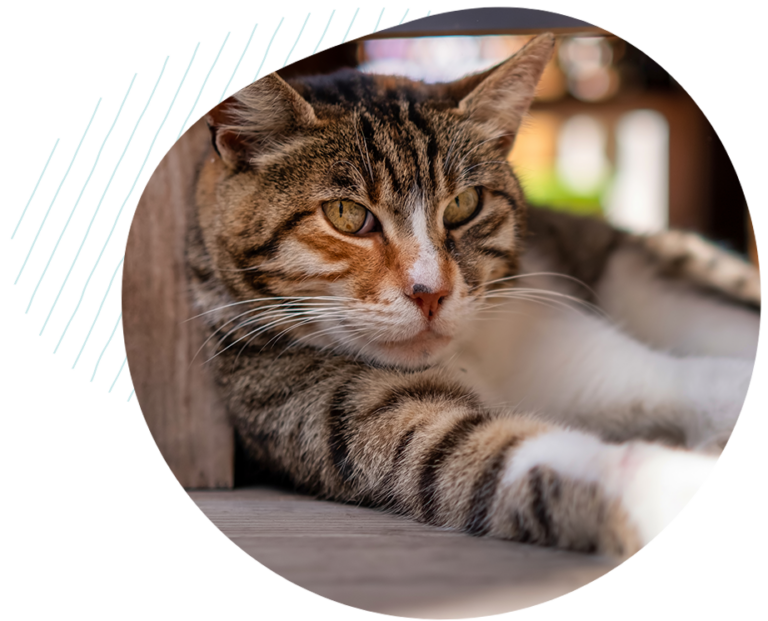Caring for your senior cat
Thanks to improvements in care and nutrition, our feline friends are now living much longer than they were 20 years ago. As cats age, their requirements change and by making some small tweaks when it comes to caring for senior cats, we can ensure their quality of life is maintained as their age advances.
Cats are considered as ‘senior’ once they are 11-14 years of age, which equates to about 70 in human years. Cats are ‘super-senior’ at 15 years and older.
Read on for our top tips on caring for senior cats.
Care Tips
Five pillars of a healthy environment:
- A safe place
- Multiple and separate resources for food, water, toileting, scratching, resting/sleeping
- Opportunity for play and predatory behaviour
- Positive and predictable social interactions
- Respect for the importance of a cat’s sense of smell
You may want to try:
- Providing low-sided litter trays and easy-access places to sleep
- Encouraging regular movement/playing to provide stimulation
- Minimising changes to the environment and routines
- Senior cats need more calories but may be inclined to eat less. Feed senior-specific diets in frequent meals. Consider trying foods which are strong-smelling or warm to help tempt them.
- Whilst older cats more commonly struggle with weight loss, obesity can be just as big a problem – aim to keep your cat at a healthy weight.
- Senior cats often need help with grooming so try to brush them regularly; little and often is usually best! Seek advice if your cat is getting matted as sometimes this can indicate an underlying problem.
- Ageing nails become brittle and less able to retract so trim them regularly to help prevent discomfort. Speak to a nurse if you would like help with this.
Could your senior cat have health problems?
Cats are particularly good at hiding their problems. Regular Vet checks will help detect problems early, hence we recommend that all cats over the age of 10 have check-ups every 6 months.
Signs of health problems include:
- Increased thirst – This may be an indication of problems including kidney disease, hyperthyroidism or diabetes. Always seek advice if you start seeing your cat drinking more often.
- Weight loss – Regular weight checks can help detect loss early and prompt investigation for underlying problems.
- Hairballs, vomiting and constipation – These are common problems, which can often be helped with supplements, diet and medications.
- Reduced mobility – Arthritis is common in senior cats and it’s easy to overlook this painful condition. Watch for subtle changes including reluctance to jump up, changes in sleeping position, reduced activity or grooming and difficulty using the litter tray. There are plenty of ways we can help, including changes to the environment, supplements and medications.



